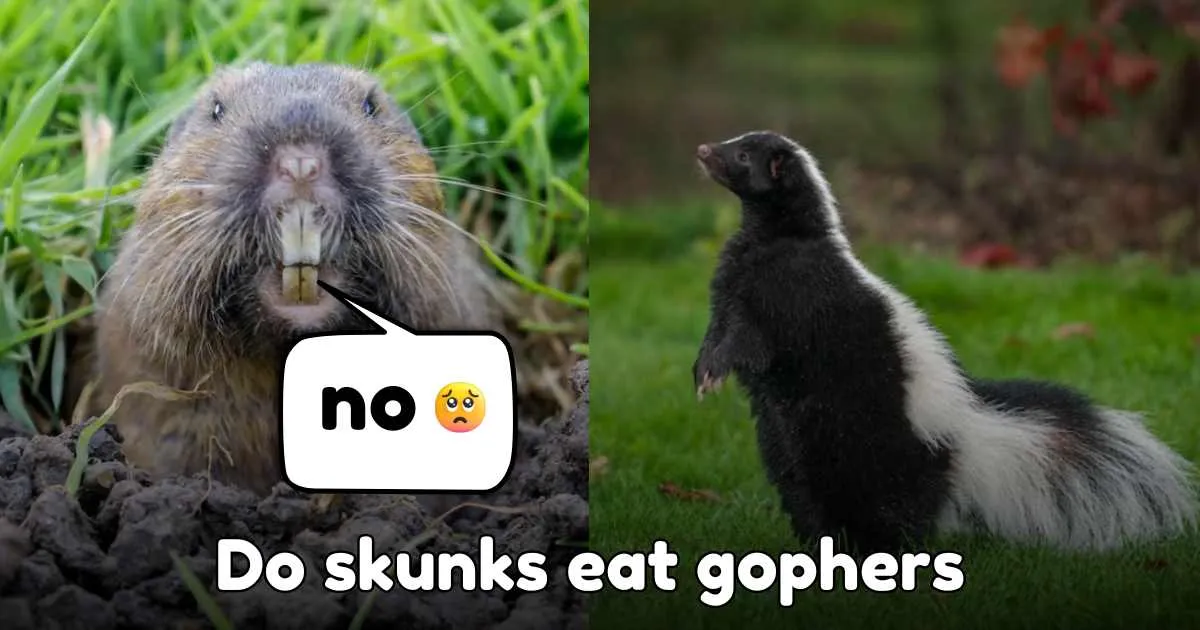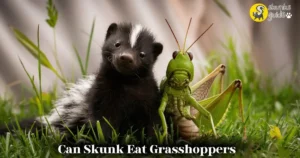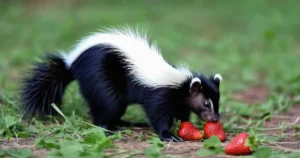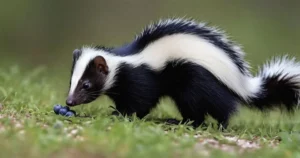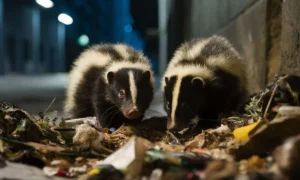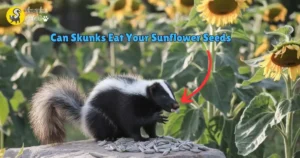Do Skunks Eat Gophers? A Skunk Owner’s Insight
As a proud skunk owner and wildlife enthusiast, I’ve spent years studying these fascinating creatures and their eating habits. Skunks, known for their distinctive black-and-white stripes and potent spray, are omnivores with highly adaptable diets. But what about gophers? Do skunks eat these burrowing rodents? The short answer is yes, but only occasionally, depending on opportunity and availability.
In this article, we’ll dive into the dietary habits of skunks, their role as opportunistic predators, and their potential to prey on gophers. By understanding these interactions, we can better appreciate their role in maintaining ecological balance.
Skunks and Their Opportunistic Diet
Skunks are well-known for their ability to eat a wide variety of foods. Their omnivorous diet allows them to adapt to seasonal changes and varying food sources. Let’s explore what makes up a skunk’s menu.
What Do Skunks Typically Eat?
Skunks are opportunistic feeders, meaning they eat whatever is available in their environment. Their diet includes:
- Insects: Beetles, grasshoppers, crickets, and larvae make up a large portion of their meals.
- Small Mammals: Mice, voles, and occasionally gophers.
- Fruits and Berries: Seasonal fruits like berries, cherries, and apples are favorites.
- Reptiles and Amphibians: Frogs, lizards, and small snakes.
- Eggs and Birds: Skunks raid nests for eggs or hatchlings.
- Human Waste: In urban areas, skunks often scavenge through garbage and compost.
Their adaptability ensures they can survive in diverse environments, from woodlands to suburban backyards.
Do Skunks Eat Gophers?
Yes, skunks can eat gophers, but this is not a staple of their diet. Gophers are small burrowing rodents that skunks may prey on if the opportunity arises. However, skunks typically prefer easier meals like insects or small rodents they can catch without much effort.
When Do Skunks Prey on Gophers?
- Opportunistic Encounters: If a skunk comes across an exposed or injured gopher, it may seize the chance to make a meal of it.
- Burrow Raiding: Skunks may dig into gopher burrows while foraging for insects, grubs, or other small prey and occasionally catch a gopher in the process.
- Food Scarcity: During times of limited food availability, skunks might target gophers more actively.
Why Gophers Aren’t a Primary Food Source
While gophers are technically within a skunk’s dietary range, they are not an easy target. Gophers are:
- Elusive: Their burrowing nature makes them hard to catch.
- Defensive: Gophers can be aggressive and bite when threatened.
- Energy-Intensive: Digging into gopher tunnels requires significant effort, which may not always yield a meal.
How Skunks Hunt for Prey
Skunks are not agile hunters like foxes or birds of prey, but they have their own unique hunting methods. Here’s how skunks might target gophers:
- Using Their Sense of Smell: Skunks rely on their excellent sense of smell to locate prey underground.
- Digging Skills: With strong claws, skunks can dig into burrows to access food, including gophers.
- Opportunistic Foraging: Skunks will investigate areas where gophers are active, such as dirt mounds near burrow entrances.
The Role of Skunks in Controlling Gopher Populations
While skunks don’t actively hunt gophers, their occasional predation can help manage gopher populations. Gophers, while important to soil aeration, can cause significant damage to gardens and crops. By preying on gophers, skunks contribute to a natural form of pest control.
Benefits of Skunks as Pest Controllers
- Reducing Gopher Damage: By eating gophers, skunks help protect gardens, lawns, and agricultural fields.
- Balancing Ecosystems: Skunks control populations of rodents and insects, maintaining a healthy ecological balance.
How to Manage Skunk-Gopher Interactions
If you’re a gardener or homeowner dealing with gophers, skunks might become unexpected allies. However, there are steps to ensure these nocturnal visitors don’t become a nuisance:
Encouraging Skunks as Natural Pest Controllers
- Minimize Pesticides: Avoid harmful chemicals that can reduce the prey available to skunks.
- Secure Garbage: While encouraging skunks for pest control, keep trash secured to avoid attracting them to non-natural food sources.
- Garden-Friendly Measures: Allow skunks to forage naturally but ensure they don’t dig excessively.
Protecting Gopher Burrows
If you want to preserve gopher habitats, you can discourage skunk activity by:
- Installing Fencing: Use mesh fencing to block access to gopher tunnels.
- Using Repellents: Natural repellents like citrus or ammonia can deter skunks from specific areas.
Frequently Asked Questions
Do skunks actively hunt gophers?
Skunks do not actively hunt gophers but may prey on them if the opportunity arises, such as during burrow digging or encounters with vulnerable gophers.
Are skunks beneficial for controlling gopher populations?
Yes, skunks can help manage gopher populations, especially in gardens or fields where gophers are pests. Their predation, while occasional, contributes to natural pest control.
How do I prevent skunks from digging up my yard?
Secure trash cans, remove food attractants, and use motion-activated lights or sprinklers to deter skunks from your property.
Conclusion
Skunks are opportunistic omnivores that occasionally prey on gophers, though they are not a primary food source. With their adaptable diets and foraging skills, skunks play an essential role in pest control and ecosystem balance. Understanding their behaviors and dietary habits allows us to coexist with these fascinating creatures while appreciating their contribution to maintaining natural harmony.
Whether you’re a wildlife enthusiast, a gardener, or simply curious about nature, skunks offer plenty to admire—beyond their infamous spray!

